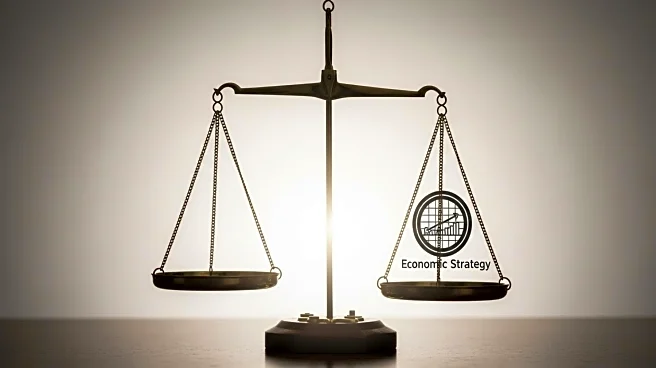What is the story about?
What's Happening?
A federal appeals court has ruled that most of President Trump's 'reciprocal tariffs' are illegal, challenging a key component of his trade policy. The court found that Trump's use of the 1977 International Emergency Economic Powers Act (IEEPA) to impose tariffs without congressional approval was unconstitutional. This decision affects tariffs on goods from over 60 countries, including China, Canada, and Mexico, which were justified by the administration as necessary to combat fentanyl trafficking. The ruling allows the tariffs to remain in effect until October 14, giving the Trump administration time to appeal to the Supreme Court.
Why It's Important?
The court's decision introduces significant uncertainty into U.S. trade policy, which has been a central aspect of Trump's economic agenda. If the ruling is upheld, it could limit the executive branch's ability to impose tariffs, reinforcing the role of Congress in trade matters. This could lead to a reevaluation of existing tariffs and potentially result in refunds of collected duties, impacting federal revenues. The decision also highlights the legal and economic challenges of Trump's tariff strategy, which has strained international relations and raised concerns about consumer prices and economic growth.
What's Next?
President Trump plans to appeal the ruling to the Supreme Court, seeking to maintain his tariff policies. The outcome of this legal battle will be closely watched by businesses, policymakers, and international partners, as it could redefine the scope of presidential authority in trade matters. In the meantime, industries affected by the tariffs may experience continued uncertainty, influencing investment decisions and market dynamics. The decision also sets the stage for potential legislative action to clarify the limits of executive power in trade policy.
















